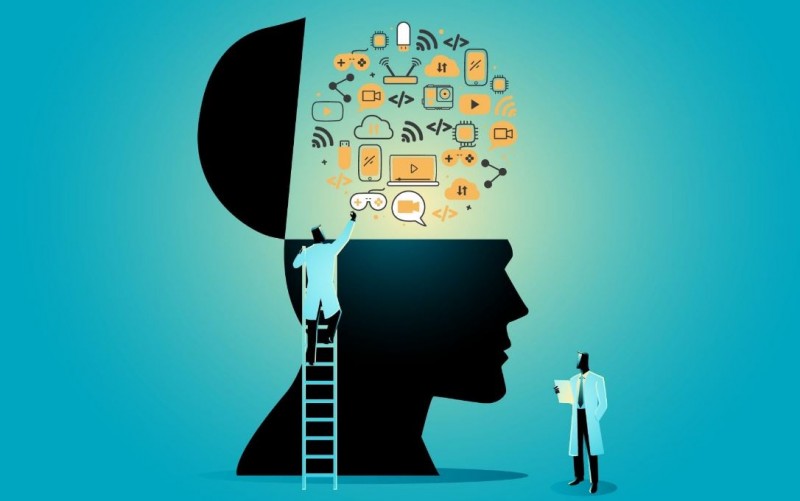
Have you ever wondered what makes us human? Why do we think, feel, and behave the way we do? The answers lie within the fascinating realm of human psychology. In this article, we will embark on a journey to explore the intricate workings of the human mind, uncovering the secrets that shape our thoughts, emotions, and actions.
1. Introduction: Unraveling the Mysteries of Human Psychology
Human psychology is a captivating field that seeks to understand the intricacies of the human mind. It explores how our thoughts, emotions, and behaviors are shaped by various internal and external factors. By unraveling these mysteries, we gain valuable insights into what it means to be human.
2. The Foundations of Human Psychology
The Biological Basis of Human Behavior
Human behavior is influenced by a complex interplay of biological factors. Our genes, brain structure, and biochemical processes play crucial roles in shaping who we are.
The Influence of Genetics on Psychological Traits
Genetics plays a significant role in determining various psychological traits, such as intelligence, personality, and mental health. Through the study of genetics, researchers aim to unravel the genetic underpinnings of human behavior.
The Role of Neurotransmitters and Hormones
Neurotransmitters and hormones serve as messengers within the brain, influencing our moods, emotions, and overall mental well-being. Understanding the intricate balance of these chemical messengers provides valuable insights into human psychology.
3. The Cognitive Processes: Understanding How We Think
Perception: The Gateway to the Mind
Perception allows us to make sense of the world around us. It involves the processes of sensing, organizing, and interpreting sensory information, shaping our understanding of reality.
Attention and Consciousness: Selective Awareness
Attention and consciousness determine what we focus on and how we experience the world. They are essential components of cognitive processes and influence our ability to learn, remember, and make decisions.
Memory: The Tapestry of Experiences
Memory enables us to retain and retrieve information, forming the basis of our personal histories. Understanding the complexities of memory formation and retrieval sheds light on how we learn and recall past experiences.
Language and Thought: Expressing the Unseen
Language serves as a tool for communication and thought. It enables us to express abstract concepts, share knowledge, and engage in complex reasoning, reflecting the intricacies of human cognition.
4. The Emotions: Navigating the Landscape of Feelings
The Nature of Emotions: A Spectrum of Sensations
Emotions are an integral part of the human experience. They encompass a wide range of sensations, from joy and love to fear and sadness, shaping our perceptions and influencing our behavior.
Theories of Emotion: Unraveling the Complexities
Numerous theories seek to explain the origins and functions of emotions. From the evolutionary perspective to the cognitive appraisal theory, these frameworks deepen our understanding of how emotions impact our lives.
Emotional Intelligence: The Power of Understanding
Emotional intelligence refers to the ability to perceive, understand, and manage our emotions and those of others. Developing emotional intelligence enhances our relationships, decision-making, and overall well-being.
5. The Developmental Journey: From Infancy to Adulthood
Prenatal Development: The Foundation of Life
The journey of human psychology begins even before birth. Prenatal development lays the foundation for our physical and psychological growth, influencing who we become later in life.
Childhood and Adolescence: Shaping Identity
Childhood and adolescence are critical stages of development, where we form our identities, socialize, and acquire essential skills. Exploring the psychological aspects of these stages provides insights into human growth.
Adulthood and Aging: Embracing Change
Adulthood and aging bring new challenges and opportunities for personal growth. Understanding the psychological changes that occur during these stages helps us navigate life's transitions with wisdom and resilience.
6. Psychological Disorders: The Shadows Within
Mood Disorders: Navigating the Ups and Downs
Mood disorders, such as depression and bipolar disorder, affect millions of people worldwide. Examining the causes, symptoms, and treatments of these disorders promotes awareness and effective interventions.
Anxiety Disorders: The Invisible Battle
Anxiety disorders manifest as excessive fear and worry, often interfering with daily life. Shedding light on the underlying mechanisms of anxiety helps reduce stigma and fosters empathy for those affected.
Personality Disorders: The Masks We Wear
Personality disorders involve long-standing patterns of maladaptive thoughts, feelings, and behaviors. Exploring the different types of personality disorders aids in understanding the complexities of human personality.
7. The Power of Therapy: Healing and Growth
Psychoanalysis: Delving into the Unconscious
Psychoanalysis, pioneered by Sigmund Freud, explores the unconscious mind and its influence on our thoughts and behaviors. This therapeutic approach aims to bring repressed feelings and memories into conscious awareness for healing.
Cognitive-Behavioral Therapy: Changing Thoughts and Actions
Cognitive-behavioral therapy (CBT) focuses on identifying and modifying negative thoughts and behaviors.H6: Humanistic Therapy: Embracing Authenticity
Humanistic therapy emphasizes personal growth, self-actualization, and the importance of the therapeutic relationship. It encourages individuals to embrace their authentic selves and strive for personal fulfillment.
8. Conclusion: Embracing the Complexity of Human Psychology
Human psychology is a vast and intricate field that unravels the mysteries of our thoughts, emotions, and behaviors. By delving into the biological, cognitive, emotional, and developmental aspects of human psychology, we gain a deeper understanding of what it means to be human.
In conclusion, exploring the universe within ourselves is a journey that never ceases to amaze. The science of human psychology continues to expand our knowledge and shed light on the complexities of our minds. By understanding the intricate workings of human psychology, we can navigate our inner world with greater awareness, compassion, and resilience.
The Power of Gratitude: Cultivating a Thankful Mindset
The Science of Sleep: Unraveling the Secrets of Restful Nights
The Healing Power of Nature: Exploring Ecotherapy and its Benefits